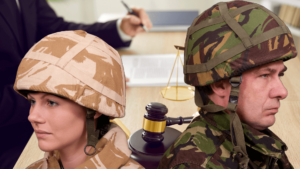Can They Do That
The world and our nation are dealing with an unprecedented attack by the Coronavirus (COVID-19). The outbreak is so widespread health experts are calling it a pandemic. Health experts predict this pandemic will dramatically increase over the next few weeks and months. The pandemic has nations and people severely panicking.
Federal, state, and local governments in America are trying to stop the panic and spread of this COVID-19 pandemic. They’ve taken unprecedented actions to do so. Those actions include burdensome guidelines, shutdowns, quarantines, and other measures.
Governmental Intrusion
The problem is many Americans don’t like government intrusion. Even if that intrusion is purported to benefit the American people by stopping this pandemic. These folks are skeptical about whether the Government has authority to make Americans behave in certain ways.
Specific Amendments to the U.S. Constitution give Americans good reason to be skeptical of government intrusion. The Framers insisted that certain Amendments to the U.S. Constitution be made before it could be ratified or approved to protect Americans from government overreach and intrusion. Two Amendments seem to be especially implicated by recent government regulations to fight COVID-19. We’ll discuss both below.
Let’s look briefly at what authority federal, state, and local governments have to force businesses and citizens to shut down, reduce operations or quarantine? To answer these questions, we must look to the U.S. Constitution, federal statutes, state statutes, and local ordinances. Let’s begin with the U.S. Constitution and federal law.
Federal Government Authority To Regulate Behavior
Article 1, § 8 of the Constitution states:
“The Congress shall have Power To… Regulate Commerce with foreign Nations, and among the several States, and with the Indian Tribes…”
The above provision is the Interstate Commerce Clause. It confers great authority on Congress to regulate all interstate commerce in America. Its reach is broad, touching everything that Americans sell, produce, manufacture, and transport in America. If an activity involves interstate commerce, it’s subject to the Interstate Commerce Clause. Congress even used it to enact specific Civil Rights laws.
And based on the Interstate Commerce Clause, Congress enacted the Public Health Service Act (42 U.S. Code § 264). The Act states in pertinent part,
The Surgeon General, with the approval of the Secretary, is authorized to make and enforce such regulations as in his judgment are necessary to prevent the introduction, transmission, or spread of communicable diseases from foreign countries into the States or possessions, or from one State or possession into any other State or possession.
This Act empowers the Department of Health And Human Services (HHS) to regulate the behavior of business and citizens during a health emergency. To enforce this Act, HHS tasks the Center For Disease and Control (CDC) to promulgate and enforce whatever regulations and guidelines HHS and CDC deem necessary.
Hence, with COVID-19, the CDC has power under the Public Health Service Act to announce national public guidelines to help gain control of COVID-19. The authority to do so emanates ultimately from Article 1, § 8 of the U.S. Constitution.
State Government Authority To Regulate Behavior
The Tenth Amendment to the U.S. Constitution states:
The powers not delegated to the United States by the Constitution, nor prohibited by it to the States, are reserved to the States respectively, or to the people.
The Tenth Amendment gives states broad powers to regulate conduct within their borders. Its grant of constitutional authority is generally called police powers. A state’s police power, subject to due process and other limitations, authorizes it to establish and enforce laws protecting the public’s health, safety, and general welfare, or to delegate this right to local governments. More specifically, states’ police powers authorize states and local governments to enact sweeping laws regarding inspections, quarantine, health of every description, internal commerce, and those with respect to turnpike roads, ferries, etc. Usually, a state’s police power to quarantine and prohibit other conduct for health reasons follows the declaration of a health emergency.
It’s worth noting, unlike states, the federal government doesn’t have police power.
Read Part 2





